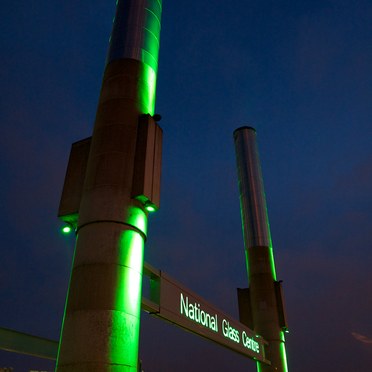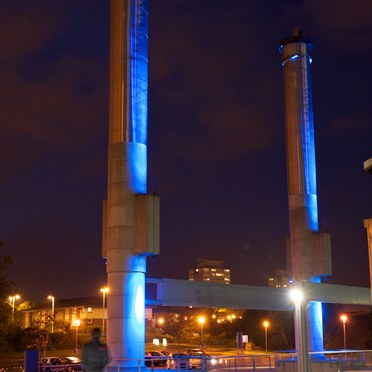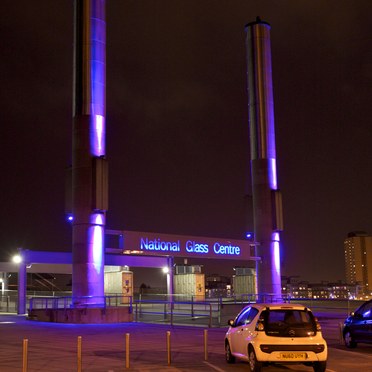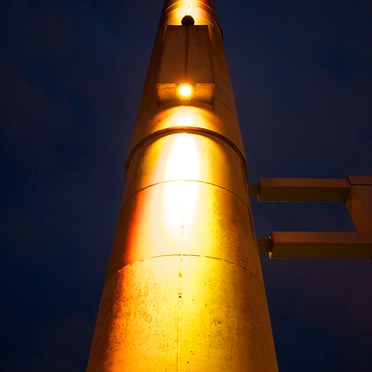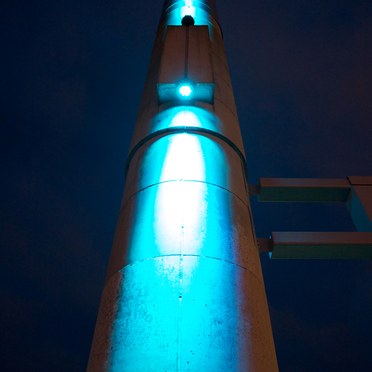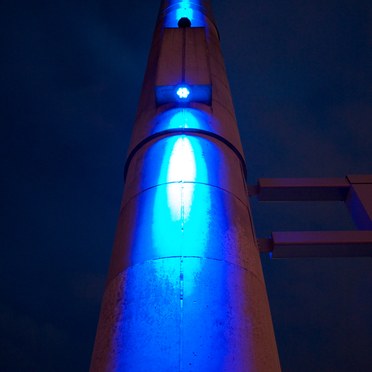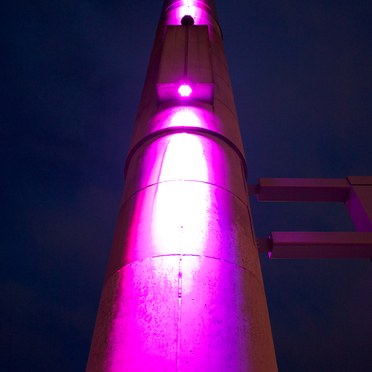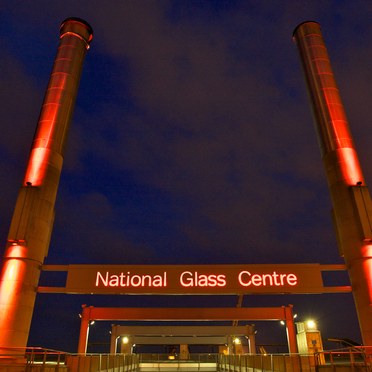National Glass Centre, UK
- Lamp efficacy
Lamp efficacy
Contrast LED’s state-of-the-art LED technology (52W) achieves energy savings of 25-65% compared with typical 70-150W metal halide floodlights.
- Ballast classification
Ballast classification
Controlling the electricity supply to the lamp (Energy Efficiency Index).
- Luminaire distribution
Luminaire distribution
Controlling light emission using optics which bend and shape the light to the correct location.
- System efficacy
System efficacy
Combining optical and thermal control within the luminaire (luminaire lm/W).
- Presence/absence detection
Presence/absence detection
Presence: Lights automatically turn on/off with movement. Absence: Lights automatically turn off and must be manually switched on.
- Daylight detection
Daylight detection
Artificial lighting which responds to the natural light conditions.
- Constant illuminance
Constant illuminance
A function designed to produce correct light levels for the duration of the maintenance period.
- Task-scene setting
Task-scene setting
Pre-defined scenes mean that only the required level of illumination is used at any particular time. A timed-off scene prevents waste energy and ensures energy consumption is kept to a minimum.
- Timed off
Timed off
Automatic cut-off can be installed to turn all lights off during unoccupied hours.
- Task lighting
Task lighting
Only the required amount of light has been used to illuminate the chimneys and sign to minimise energy use.
- Zoning of lighting
Zoning of lighting
Lighting is zoned according to area use.
- Maintenance schedule
Maintenance schedule
Maintenance must be performed in response to product age, performance and environment.
- Waste light
Waste light
Eliminating waste light which does not hit the intended target.
- Reflectance
Reflectance
Taking advantage of light which is reflected from the surface within the space.
- Visible smart metering
Visible smart metering
Results of actions can be quickly seen as increased or decreased energy use to encourage responsible energy consumption.
Thorn Lighting transforms National Glass Centre chimneys into impressive landmark
National Glass Centre is located in Sunderland, England, on the north banks of the River Wear. It aims to share its knowledge of contemporary glass by allowing people to learn how to make glass, watch glass being made and view exhibitions inspired by glass. Part of the University of Sunderland, the Centre is at the forefront of glass research and its facilities are internationally recognised.
A recent £2.3m refurbishment project has more than doubled the size of the Centre's exhibition areas and learning studios. As part of the refurbishment project, Thorn was invited by J H Partners Consulting Engineers to come up with a solution to provide a colour change lighting effect to the two 18m glass centre chimneys and main entrance sign.
Contrast LED floodlight creates stunning colour changing effect
To create the colour changing effect, Thorn's Contrast LED floodlights with Red-Green-Blue (RGB) coloured LEDs were ideal. These luminaires, along with the lighting within the main sign, were all controlled by a standalone Sensa DMX controller allowing for scene control from the main reception. Contrast LED has the power to project light up to 30m while producing a variety of precise beam distributions. By using the latest LED technology, Contrast LED creates a stunning effect while minimising energy use. With a connected load of just 52W, energy savings of 25-65% are possible when compared with typical 70-150W metal halide floodlights.
The Sensa DMX controller provides the ability to have pre-defined scenes and colour change programmes running during the night. The effect on the chimneys means they can be seen from miles around, giving a focal point on the bank of the River Wear.
The Sensa DMX controller has the ability to control up to 32 luminaires on a single output, allowing for individual control of each luminaire via a unique DMX address. DMX splitters can also be used to increase the capacity of the system to 128 luminaires. This allows the DMX control system to offer complete flexibility and future proofing should requirements change due to further developments.
Importantly, the complete lighting system is easy to install and above all, easy to use with the software provided.
Key Facts
- The first UK project to use the new Sensa DMX system to control RGB luminaires
- Height of chimneys: 18m
- Number of luminaires required to illuminate the two chimneys: 8

